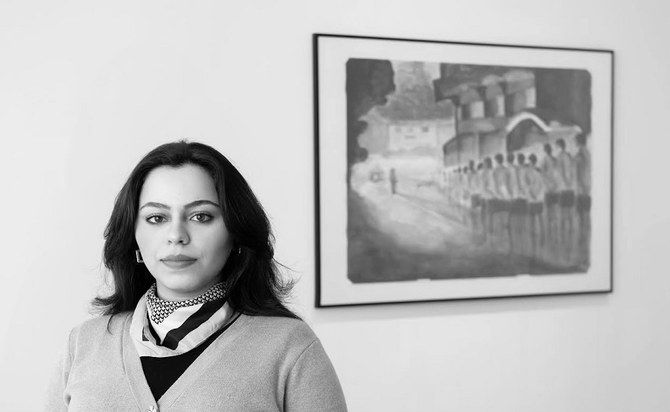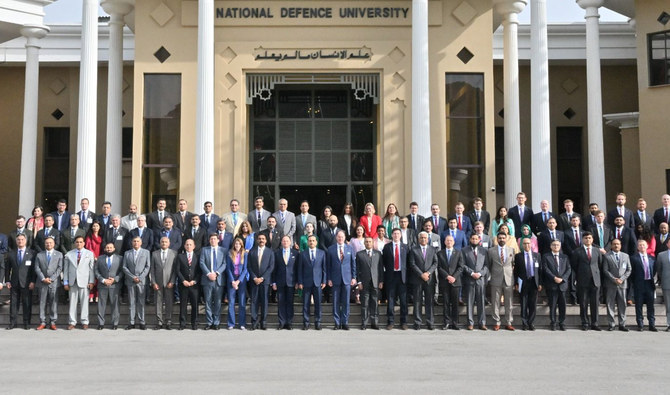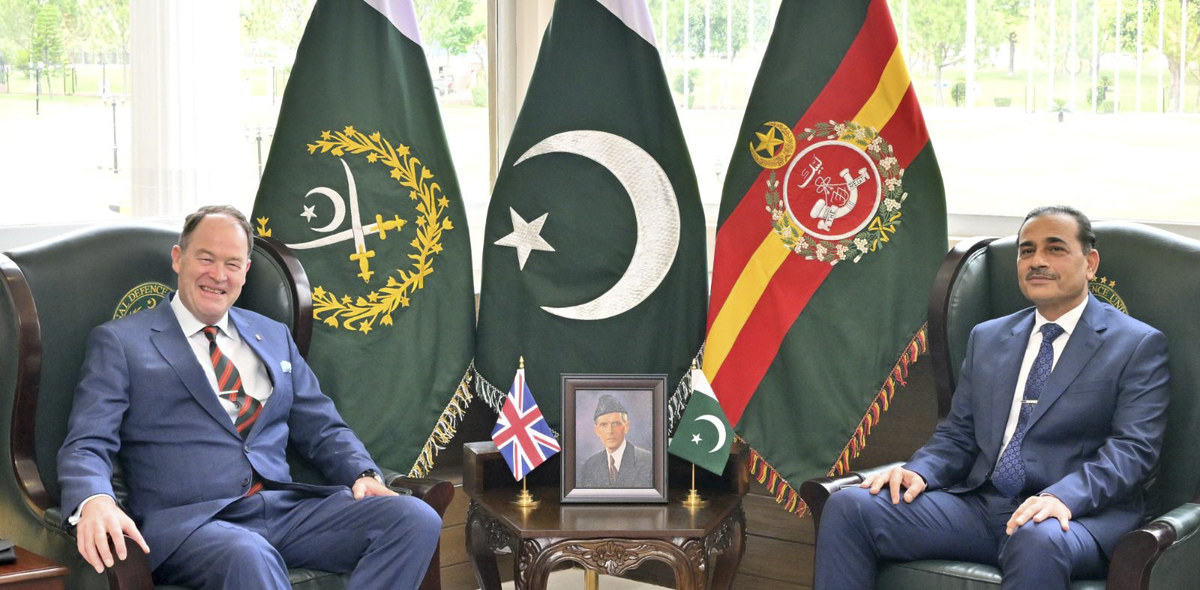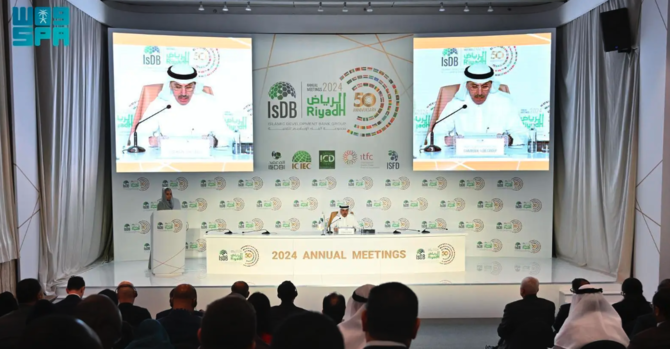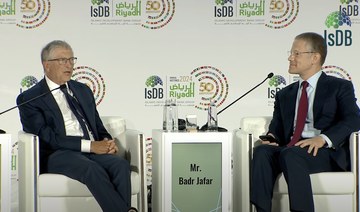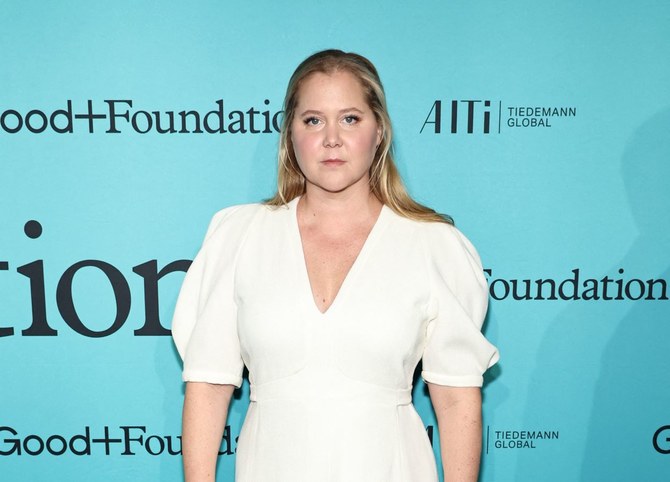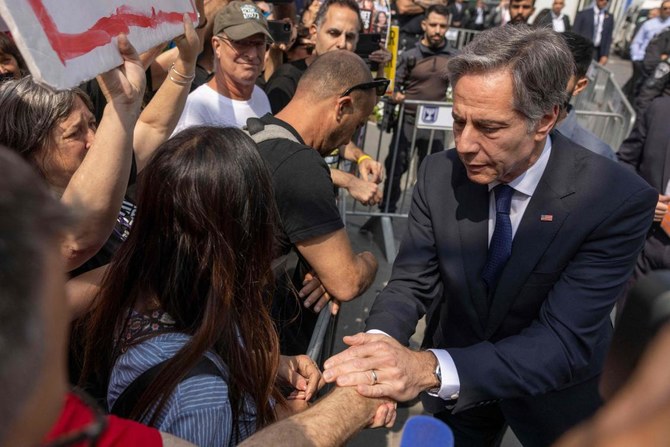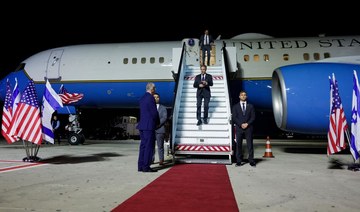DUBAI: In the art world this week, all eyes will be on Venice. The Italian city will inaugurate the 60th edition of its namesake biennale, arguably the world’s most prestigious art event, on Apr. 20. Coinciding with the biennale is the opening of an intimate exhibition by the Palestinian painter Malak Mattar, who hopes to shed light on the atrocities unfolding in her native city of Gaza on an international stage.
Mattar’s parents and two younger siblings were recently safely evacuated from Gaza to Egypt. “A burden has been lifted but I still have family members there,” she tells Arab News from Alexandria, where she has been reunited with her family. “The past six months have been a nightmare, to be honest. The situation has been going on for this long because people have become numb and desensitized.”
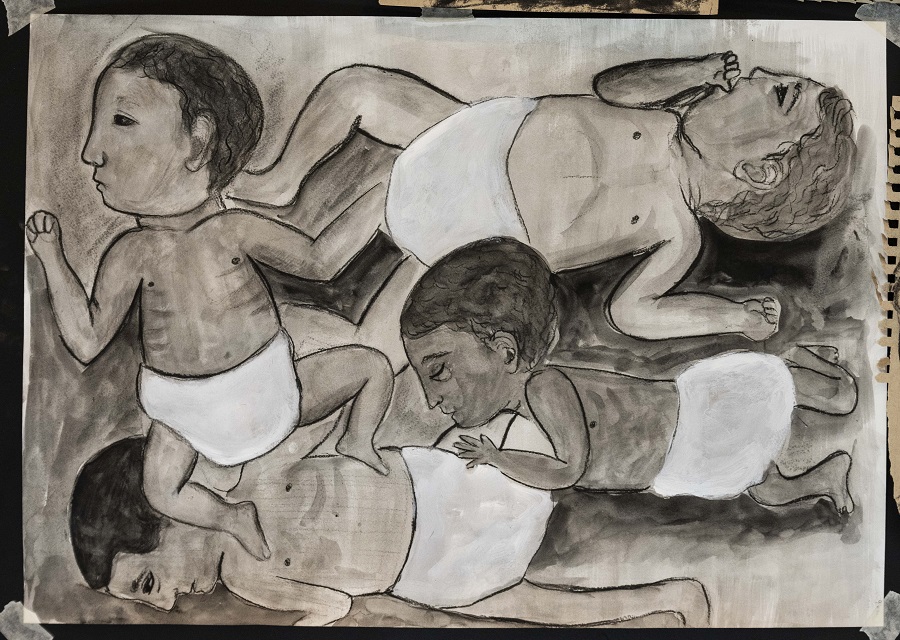
Palestinian painter Malak Mattar hopes to shed light on the atrocities unfolding in her native city of Gaza. (Supplied)
This won’t be the first time that 24-year-old Mattar has shown her work in Italy, but her exhibition at Venice’s Ferruzzi Gallery during the biennale opening is a significant milestone in her career, which is going from strength to strength.
“This might be the most important exhibition that I’ve ever done in my life,” she says. It all began with a chance encounter at her previous exhibition in London.
Dyala Nusseibeh, director of Abu Dhabi Art, and a prominent figure in the regional art scene, was in attendance and later approached the young artist with a proposal of setting up an exhibition in Venice. “I told her, ‘Of course, let’s do it.’ I was so happy,” she recalls. “I’m grateful to Dyala for making this happen in a short period of time.”
Her exhibition, which runs until June 14, is called “The Horse Fell off the Poem.” It features one large-scale painting and seven smaller charcoal drawings, showing harrowing images of victims. The show’s title is based on one of the late Palestinian poet and resistance writer Mahmoud Darwish’s works.
“(Darwish) is part of our individual and collective identity,” says Mattar. “We grew up with his poems, his voice and his story. He was so close to us, like a family member. I still remember his death (in 2008) and it was really hard. His poems are timeless and you can always relate to them, especially now.”
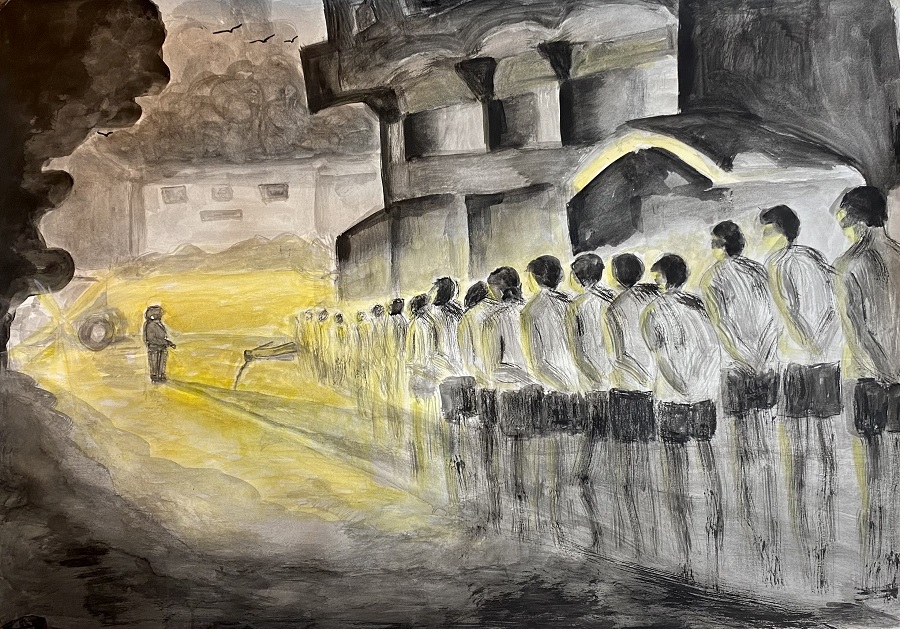
Mattar believes that her works are being shown at a time when freedom of expression about Palestine is limited. (Supplied)
Previously called “Last Breath”, the large-scale painting has been retitled “No Words.” The black-and-white image depicts hellish and disturbing scenes of loss, chaos, deterioration and death. Mattar doesn’t hold back.
“The horse has a symbolism and a place in the current time of war,” Mattar previously told Arab News. “Its role has changed from carrying fruits and vegetables to being an ambulance. There’s a strength and hardness to a horse, which is how I also see Gaza; I don’t see it as a weak place. In my memory, I think of it as a place that loves life. It always gets back on its feet after every war.”
She is aware that her works could stir controversy. That tends to be the case at the biennale, which is renowned for addressing socio-political issues. This year’s theme is “Foreigners Everywhere.”
“Any reaction is good, whether negative or positive,” Mattar says. “If the work doesn’t elicit any reaction, then the work is not effective.”
Mattar believes that her works are being shown at a time when freedom of expression about Palestine is limited. This has affected the art world too. In recent months, a US university exhibition of works by the veteran Palestinian artist Samia Halaby was cancelled, the auction house Christie’s withdrew a couple of paintings by Lebanese painter Ayman Baalbaki from a sale (one of them depicted a man in a red and white keffiyeh), and there were calls from the general public to cancel the Israeli national pavilion at the Venice Biennale.
“The art world is so black and white,” says Mattar. “There is no freedom to express yourself. There are always restraints. So, for “No Words” to be (shown in the same place and at the same time) of the biennale is important. The genocide is still happening. It’s not ending. (These works) are not a reflection of a time that already happened — it’s happening at the moment. The best time to show them is now.”



